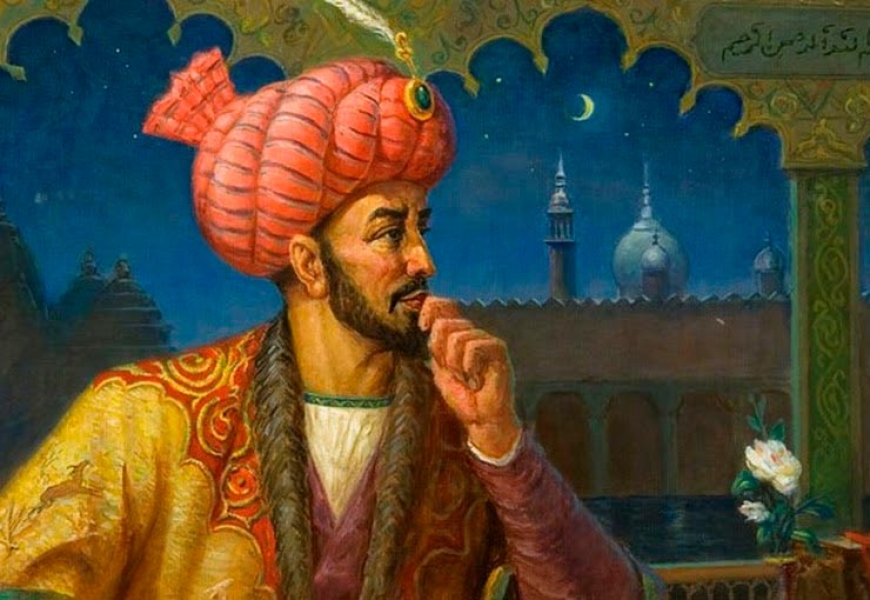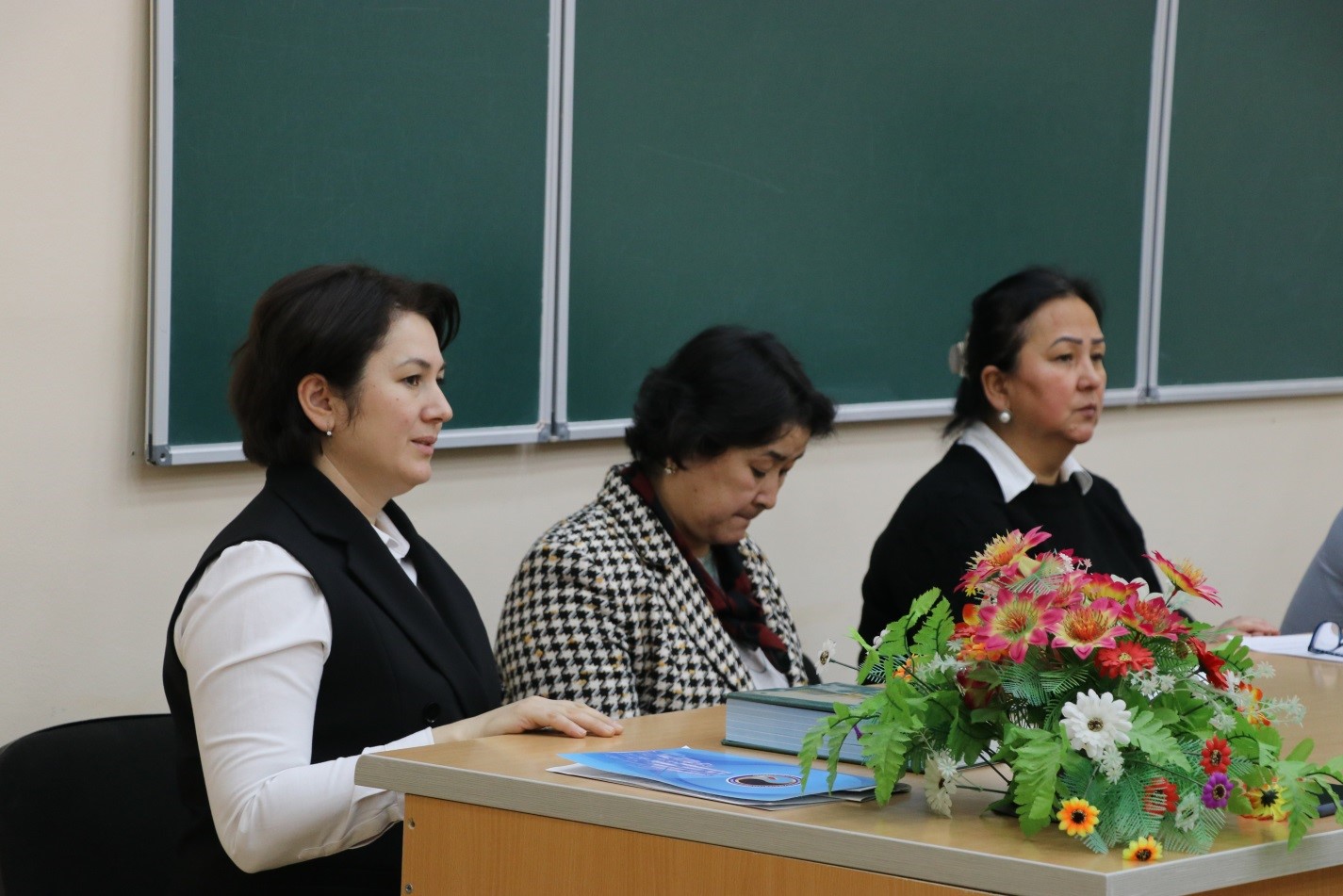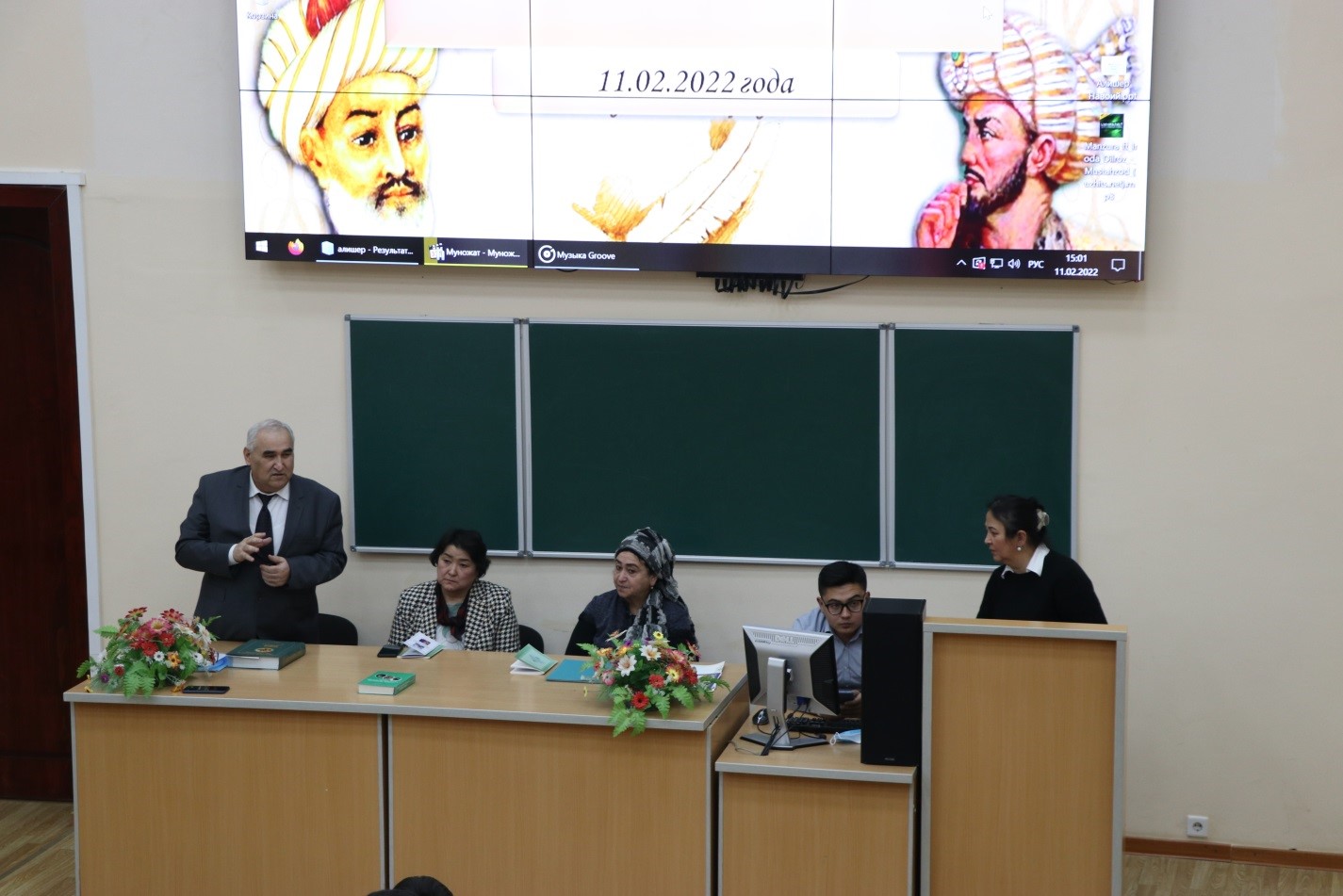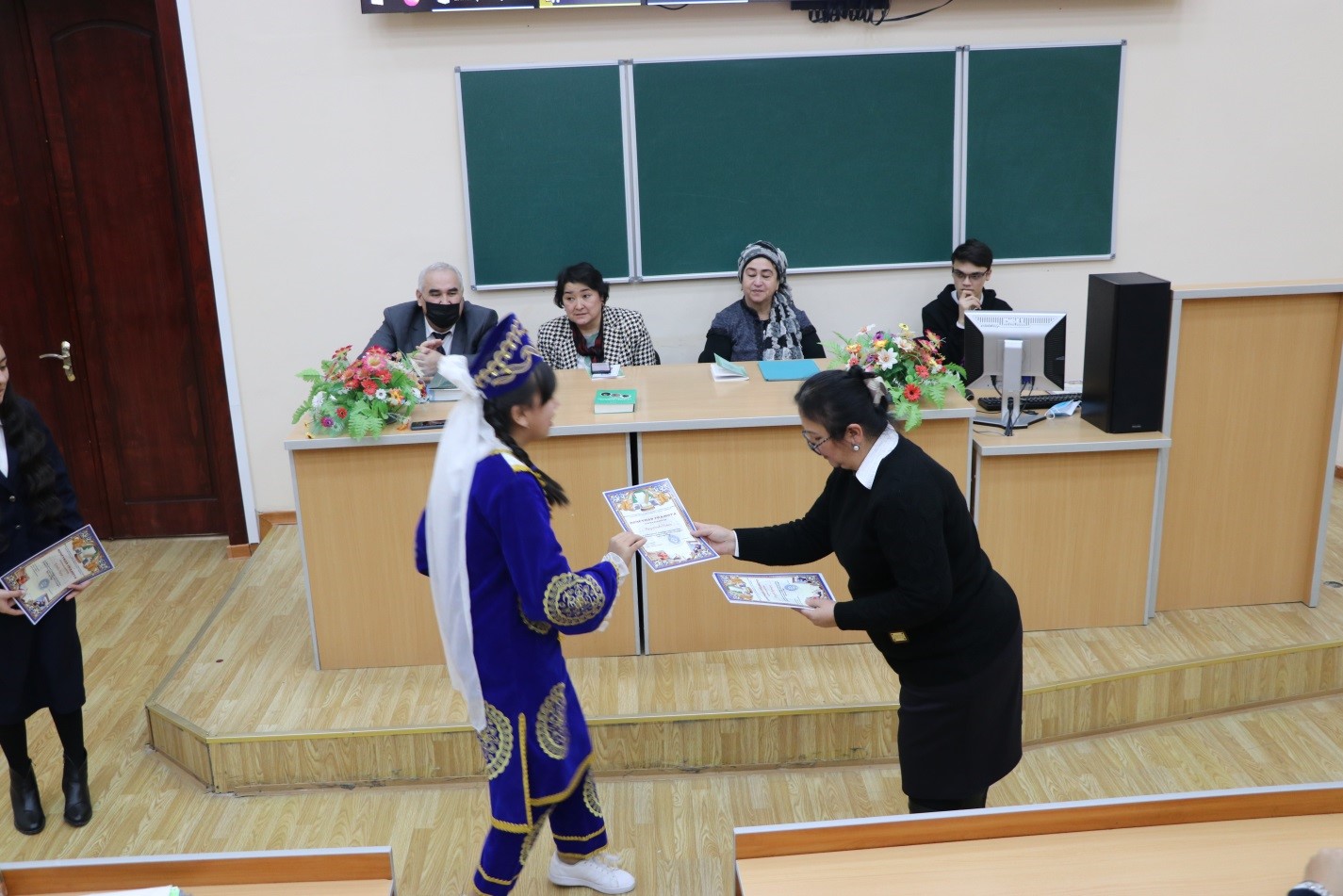ON THE GREAT HERITAGE OF ALISHER NAVOI AND ZAKHIRIDDIN MUHAMMAD BOBUR

In order to implement the Five Important Initiatives, the Branch of the Russian State University named after I.M. Gubkin in Tashkent has organized and held a literary and poetic evening dedicated to the birthday of Alisher Navoi and Zahiriddin Muhammad Babur. This event was attended by teachers, staff, students of the Branch and the sponsored academic lyceum of the Branch.
The guests of honor of the evening were Ziyodakhon Kadirovna Teshabayeva, Doctor of Philology, Associate Professor of the Tashkent State University of the Uzbek Language and Literature named after Alisher Navoi and Rashidova Mamura Khairullaevna, PhD in Philology, Navoi scholar, senior researcher at the State Museum of Literature named after Alisher Navoi.

In their speeches, scientists described in detail about the life and work of two personalities. Rashidova Mamura Khairullaevna, focused on Alisher Navoi, the great Turkic poet, thinker, public figure and statesman of the 16th century. He left a mark in history as an outstanding writer who wrote in Persian (Farsi) and Turkic languages. Thanks to the Turkic-speaking creativity, Navoi is considered the ancestor of the literature of many Central Asian peoples. For example, in Uzbekistan Navoi is the founder of the national literary language.
The most famous work of Navoi is “Khamsa”, or “Pyateritsa” - a collection of 5 poems, written by the author as a tribute to the work of the classic of Persian poetry Nizami Ganjavi, who created his “Pyateritsa” in the 12th century. Navoi's Hamsa includes the poems Confusion of the Righteous, Leyli and Majnun, Farhad and Shirin, Seven Planets, Iskander’s Wall, written at different times. The guest declared excerpts from the poems of the great poet.
In addition to the guest’s speech, a 3rd year student Mahamatkarimov Jahongir made the presentation about the creative activities of the great poet. In particular, the speech touched upon the different styles of writing “Pyateritsa”.
Teshabayeva Ziyodakhon Kadirovna, dwelled on the work of Zahiriddin Muhammad Bobur. Made a presentation in English. The poetic heritage of Bobur is multifaceted and rich, the speaker noted. The lyrical works are collected in The Kabul Divan (1519), then in The Indian Divan (1529-30). He wrote poems in more than 10 genres of oriental lyrics. His poems reflect his personal life, environment and historical events. The basis of Bobur’s poetry is verses of love-lyrical content. The speaker noted that Bobur’s poems are autobiographical, in which deep feelings are touchingly expressed, the poet's experiences are masterfully told. In the second part of the evening, students and students of the academic lyceum spoke. They performed magnificent gazelles and rubais of great poets. The festive event was decorated with dance numbers prepared by lyceum students under the guidance of a teacher Kosimova Dilfuza Rakhimjanovna.
In conclusion, a ceremony was held to present commendable letters to activists for participating in this event. Separately, the creative works of students were noted, who took prizes in the design of the best posters dedicated to this topic. The souvenirs were presented to the guests of the evening.
The organization of the literary and poetic evening dedicated to the birthday of Alisher Navoi and Zahiriddin Muhammad Babur was attended by the faculty of the departments of “Social and Humanitarian Disciplines” and “Foreign Languages” of the Branch, representatives of the department “Manaviyat va marifat” and work with students.
Department of “Social and Humanitarian Disciplines”






